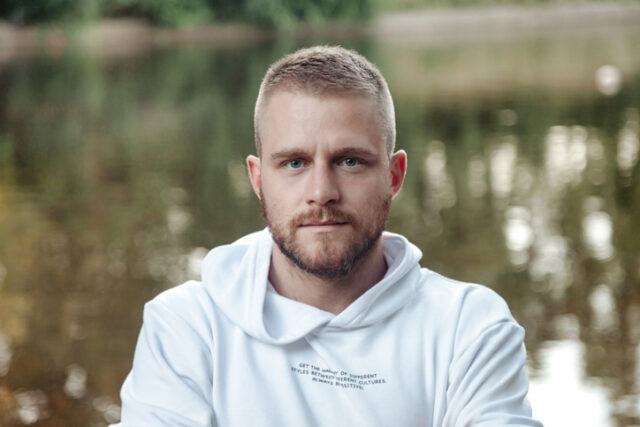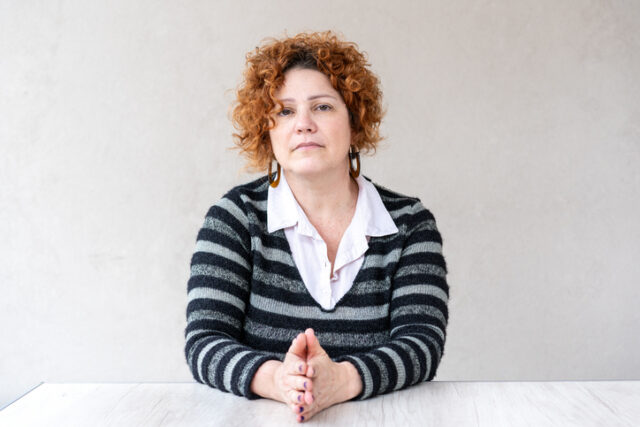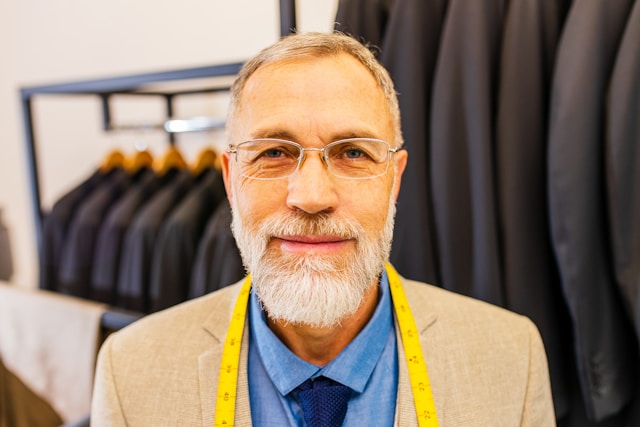Some people are brilliant at looking okay, even when they’re really not.

They smile, they laugh, they keep things light, but inside, there’s a storm quietly brewing. However, they’re not always hiding the truth intentionally. Sometimes, they don’t know how to say it; other times, they just don’t want to burden anyone. That being said, if you pay close attention, you’ll notice the little tells. Here are some of the major signs someone might seem happy on the outside but be carrying something much heavier on the inside.
1. They’re always the one checking in, but rarely talk about themselves.

They’ll ask how you’re doing, show up when you’re down, and be a great listener. However, when it’s their turn to open up, they keep it surface-level or redirect the conversation. It often comes from a fear of being a burden. They’re used to giving support, not receiving it. And while it might seem generous, it can also be a way of keeping their own pain safely hidden.
2. Their humour is always upbeat, but rarely personal.

They joke around, light up a room, and always have something witty to say. But their humour rarely reveals anything about how they’re really doing. It’s a performance more than a release. People who mask pain this way are often afraid of vulnerability. They use laughter as a way to keep things from getting too real, both for other people and for themselves.
3. They’re high-functioning, but constantly exhausted.

They get things done, meet deadlines, show up for work or family, but behind it all is a level of emotional fatigue they don’t talk about. They might describe themselves as “just tired,” but it’s a tired that never really goes away. Staying busy gives them structure, but it also distracts them from feelings they don’t know how to face. That burnout isn’t just from workload; it’s from emotional suppression.
4. They avoid deep questions with charm or deflection.

Ask them how they’re really doing, and you’ll get a smooth answer. Something polished, funny, or vague. They know how to move a conversation away from the hard stuff without ever making it obvious. Their emotional avoidance is often self-protective. Letting people in would mean confronting their own sadness, and for someone used to coping alone, that feels too exposed.
5. Their social media presence doesn’t match real life.

They look vibrant online—always out, smiling, surrounded by people. However, when you see them in person or talk one-on-one, there’s a flatness or distance they can’t fully hide. That curated version of themselves is easier to manage than their real emotional landscape. It’s not always outright lying—it’s likely that they’re choosing control over vulnerability.
6. They downplay their pain with phrases like “I’m just being dramatic.”
 Source: Unsplash
Source: Unsplash When they do hint at struggling, it’s often followed by a joke or a comment to minimise it. They’ll say things like “I’m being ridiculous” or “I just need to get it together.” Their internal dismissal keeps their sadness tucked away. If they don’t take it seriously, maybe no one else will have to either. Of course, the pain doesn’t disappear—it just gets buried.
7. They have sudden changes in mood that don’t quite add up.

One moment they’re cheerful, the next they’re quiet or distracted. You can feel the emotional dip, but they brush it off or change the subject quickly. It feels like a mood swing, but it’s really a crack in the mask. These moments often come when the sadness leaks through unintentionally. They patch it up quickly, but it’s a reminder that the pain is never far from the surface.
8. They isolate in subtle ways.

They still go out, still respond to texts, but they’ve slowly stopped initiating plans or showing up the way they used to. It’s not loud withdrawal; it’s a quiet fading out. They might tell themselves they’re just tired or busy. But emotional distance often creeps in when someone’s dealing with something they don’t feel ready to share or explain.
9. They’re deeply empathetic, but avoid their own emotions.

They’re the first to offer support, advice, or comfort when someone else is going through a hard time. However, when the focus moves to them, they shut down or deflect. Caring for other people becomes a shield. It lets them stay emotionally present without having to turn that same care inward—because facing their own sadness feels harder than holding someone else’s.
10. They stay overly positive, even in heavy situations.

When things go wrong, they rush to say, “It could be worse,” or “Everything happens for a reason.” They don’t linger in negative emotions, even when the moment calls for it. That compulsive optimism can be a defence mechanism. It keeps their sadness from taking over—but it also stops them from fully processing it. Constant positivity isn’t always a sign of peace. In fact, it’s often a sign of fear.
11. They’re constantly taking care of everyone else.

They check in, run errands, and always offer to help, sometimes to the point of burnout. Taking care of other people gives them purpose, but it also distracts them from their own inner world. Being needed becomes a substitute for being known. When the giving goes unbalanced, it leaves them feeling even more invisible in their own pain.
12. They talk about the past more than the present.

Their stories are often nostalgic, about better times or old memories. They light up when talking about who they used to be, but they get vague when it comes to how they’re doing now. Sometimes, this is a sign they feel disconnected from the present. That the now feels heavy or unsatisfying, so they retreat into what used to feel safe or good instead.
13. They make jokes about being “a mess,” but don’t let anyone get close.

They’ll throw in self-deprecating humour about being burnt out, chaotic, or emotionally fried. Everyone laughs, including them. However, when someone tries to dig deeper, they pull back. It’s a way to express the truth without actually having to talk about it. The humour is real, but it’s also a warning not to look too closely. It’s vulnerability, packaged for distance.
14. They disappear emotionally the moment things get real.

Conversations are light, warm, and friendly—until you ask how they’re really doing. Then their tone changes. They’ll joke, redirect, or close off, like a door quietly closing. That disconnection isn’t coldness—it’s protection. They’ve learned to be emotionally available to other people, but not fully open themselves. Because behind the happy surface, something heavier sits unspoken, and they’re not ready to share it yet.



